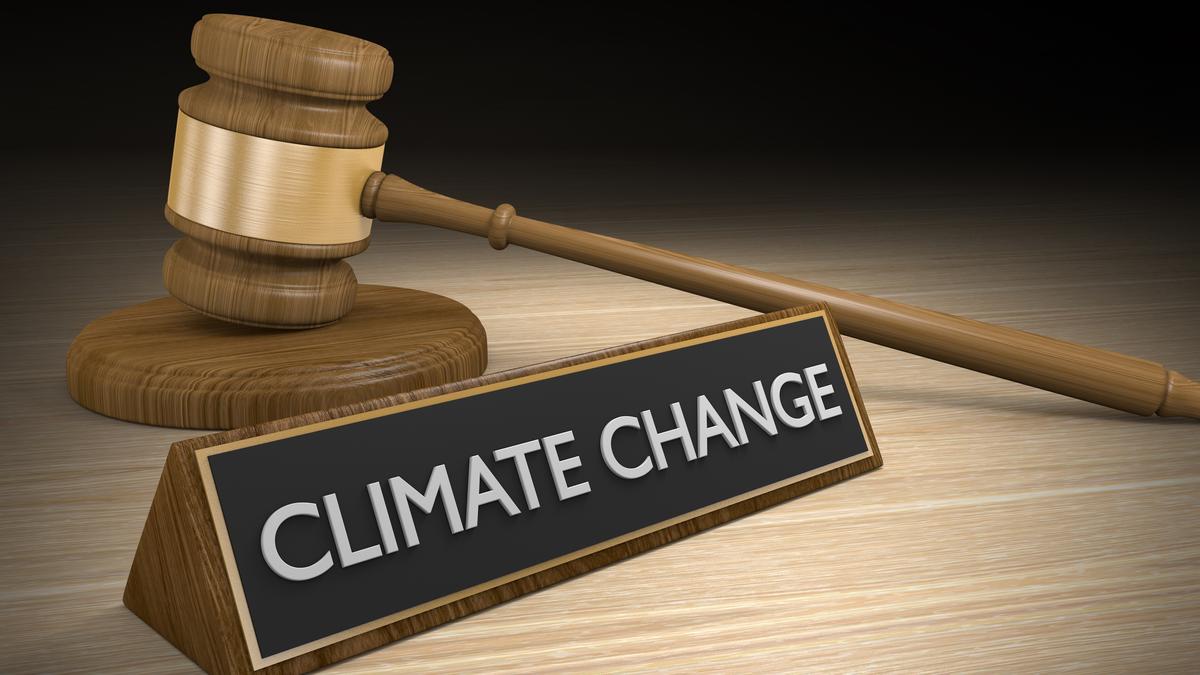Science
World Court’s Advisory Opinion Strengthens Global Climate Action

The International Court of Justice (ICJ), often referred to as the World Court, has delivered a pivotal advisory opinion regarding the obligations of states in combating climate change. This opinion, issued on March 15, 2024, while not legally binding, is viewed as a significant interpretation of international law. It holds the potential to generate considerable pressure on nations to enhance their climate action efforts.
The court’s unanimous ruling establishes that states have a legal duty to protect the climate system and outlines the repercussions for failing to meet these obligations. This advisory opinion aligns with recent trends observed in other international forums, such as the International Tribunal for the Law of the Sea (ITLOS) and the Inter-American Commission on Human Rights (IACHR), which have similarly recognized the responsibilities states hold in addressing climate change.
Clarification of Climate Obligations
The court’s opinion is notable for its comprehensive interpretation of various climate treaties, including the United Nations Framework Convention on Climate Change, the Kyoto Protocol, and the Paris Agreement. It integrates the best available scientific consensus to reinforce the operational aspects of these treaties. For example, while the Paris Agreement aims to limit global temperature increases to “well below 2°C,” the court emphasized that the relevant threshold for states to aim for is the more ambitious 1.5°C target, based on current scientific understanding and subsequent decisions made at Conference of the Parties (COP) meetings.
In its ruling, the court also addressed the preparation of Nationally Determined Contributions (NDCs). It rejected the notion that states possess unfettered discretion in formulating their NDCs, which outline their climate action plans. Instead, it determined that countries must ensure their NDCs reflect the “highest possible” ambition and take proactive measures to fulfill these commitments.
The advisory opinion further delves into the implications of climate justice, particularly regarding the divide between the Global North and South. The court underscored the principle of common but differentiated responsibilities and respective capabilities (CBDR-RC). This principle suggests that the evaluation of countries’ climate actions should consider historical emissions and current economic circumstances.
Financial Obligations and Technological Support
A critical aspect of the ruling is the court’s insistence that developed nations have a legally binding obligation to provide financial resources and technology transfer to developing countries for both mitigation and adaptation efforts. While the Paris Agreement does not stipulate a specific level of financial support, the court noted that this obligation must be interpreted in light of the overarching temperature goals established in international agreements. Breaches of this obligation can be assessed based on standards of good faith and due diligence.
Additionally, the court dismissed arguments from some nations, including India, asserting that climate treaties operate as a self-contained regime. It clarified that obligations to mitigate climate change, such as the duty to prevent significant harm and to cooperate in protecting the climate, arise from various international environmental treaties and customary international law.
The court recognized the adverse effects of climate change on human rights, particularly affecting vulnerable populations. Consequently, countries must consider human rights implications when formulating climate policies and ensure that their efforts do not violate these rights.
In practice, this means that withdrawal from international climate agreements, as seen with the United States, does not exempt a country from its climate obligations. Nations must not only engage in a transition towards greener policies, but they must also guarantee that this transition is just and equitable.
The ruling provides leverage for small island states, which have been at the forefront of advocating for this advisory opinion. Their push to request the opinion from the UN General Assembly marks a significant legal victory that empowers them to hold major greenhouse gas emitters accountable and demand more ambitious climate actions.
This decision is expected to bolster ongoing climate litigation across various jurisdictions, where the adequacy of national climate actions is being challenged for failing to meet human rights standards, including cases like Ridhima Pandey currently before the Indian Supreme Court. Countries in the Global South now have a stronger basis to collectively advocate for developed nations to uphold their commitments to climate finance and technological support while resisting policies that disproportionately impact their progress.
In conclusion, the advisory opinion from the International Court of Justice represents a crucial moment in the global climate dialogue. It sets a legal precedent that could reshape how nations approach their climate responsibilities and underscores the urgent need for collaborative action in the fight against climate change.
-

 World5 months ago
World5 months agoSBI Announces QIP Floor Price at ₹811.05 Per Share
-

 Lifestyle5 months ago
Lifestyle5 months agoCept Unveils ₹3.1 Crore Urban Mobility Plan for Sustainable Growth
-

 Science4 months ago
Science4 months agoNew Blood Group Discovered in South Indian Woman at Rotary Centre
-

 World5 months ago
World5 months agoTorrential Rains Cause Flash Flooding in New York and New Jersey
-

 Top Stories5 months ago
Top Stories5 months agoKonkani Cultural Organisation to Host Pearl Jubilee in Abu Dhabi
-

 Sports4 months ago
Sports4 months agoBroad Advocates for Bowling Change Ahead of Final Test Against India
-

 Science5 months ago
Science5 months agoNothing Headphone 1 Review: A Bold Contender in Audio Design
-

 Top Stories5 months ago
Top Stories5 months agoAir India Crash Investigation Highlights Boeing Fuel Switch Concerns
-

 Business5 months ago
Business5 months agoIndian Stock Market Rebounds: Sensex and Nifty Rise After Four-Day Decline
-

 Sports4 months ago
Sports4 months agoCristian Totti Retires at 19: Pressure of Fame Takes Toll
-

 Politics5 months ago
Politics5 months agoAbandoned Doberman Finds New Home After Journey to Prague
-

 Top Stories5 months ago
Top Stories5 months agoPatna Bank Manager Abhishek Varun Found Dead in Well









